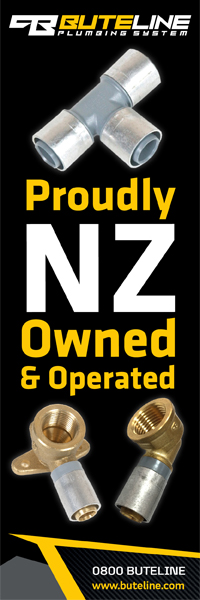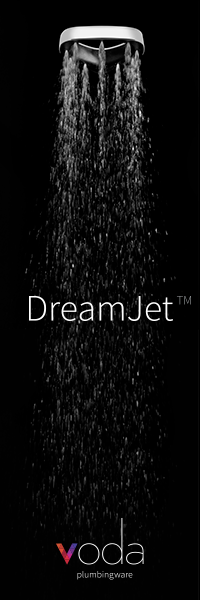When Can You Not DIY?
24 July 2018
When DIY becomes DDIY – DON’T Do It Yourself
When it comes to plumbing, gas and drainage, there are a lot of restrictions on what non-qualified people can do. DIYers could land themselves in hot water.
Greg Wallace, Chief Executive of Master Plumbers, Gasfitters and Drainlayers NZ, says many homeowners are unaware that there's little they can legally do themselves. "It is hard to quantify how much work is going on under DIY – it's part of the New Zealand culture that people do things for themselves.”
‘The Block’ effect
"Reality TV shows also inspire people to get stuck into their own renovations, but the general public should not be carrying out DIY when it involves plumbing, gasfitting and drainage in their homes,” he says.
It’s a legal matter
"The plumbing trade is licensed and protected under Ministry of Health guidelines for public safety reasons, so apart from replacing tap washers there is not a lot consumers can do for themselves," says Greg.
"For example, people think they can replace basins, vanity units or toilets in their homes or rental properties because they are replacing like with like, but because there's a waste pipe connected to these things they are not allowed to complete this work."
Worst case scenarios – the reasons why you need a professional
DIY gone wrong can put your family's health and safety at risk, Greg says.
It can also result in expensive mistakes, possible prosecution and fines, invalidate your home insurance and make it difficult to sell your property in the future. "The consequences can be huge if the work is carried out by an unlicensed person."
The biggest risk is cross contamination when something isn't installed correctly. "Incorrect installation could result in an undetected leak under the house from a basin connection or toilet pan that will cause catastrophic problems later on."
One of the worst case scenarios is cross-contamination of stormwater and sewerage. "It means sewerage is basically running directly into the stormwater drains, down the street and untreated straight into rivers, streams or the sea. And imagine you've got children playing nearby."
The licensing is so strict because you are talking about public health and complying with standards.
"Incorrectly installed plumbing can cause infection in the neighbourhood, not just in your own home. Contamination and disease are a huge risk."
The easy way to know when you need a licensed plumber
It's vital for homeowners, DIYers in particular, to understand that legislation requires a licensed plumber to complete all sanitary plumbing work.
The golden rule is that any work that involves sanitary plumbing or potable water supply must be carried out by a licensed plumber.
Call a professional if you experience any of the following:
- Sewerage smells
- Blocked or overflowing drains
- No hot water
- Low water pressure throughout your home
- Extremely hot water
- Ceiling leaks or a soggy patch on a wall
- Burst pipes or frozen pipes
- Seriously leaky or overflowing guttering
- Gas smells or faulty gas appliances.
Some plumbing work also requires a council consent
People must also hire a plumber if they are adding to a building structure, such as extending or adding a bathroom.
"If you're replacing like with like inside a bathroom, a plumber can fit a new toilet, basin and shower, for example, without a plumbing consent. But if you extend your existing bathroom, you need a consent from your local council."
Because local authorities have slightly different rules for plumbing consents, he advises homeowners to be vigilant and check with their local council.
"Normally the tradesperson will take care of any consenting process, but it's always good to be aware of the rules and follow up. It's also good to keep a record of everything when you're doing something like a bathroom alteration, including details of who completed the work."
If qualified tradespeople aren't involved and the consent process isn't followed, homeowners could face problems when it comes to selling their property.
"Sign-off is a must – if something isn't signed off, consumers can be prosecuted down the track. Employing a licensed plumber protects the consumer from serious consequences."
It makes sense to engage a Master Plumber, Gasfitter or Drainlayer
"They know what they're doing and their workmanship is backed for 12 months with the $20,000 residential Master Plumbers Guarantee," says Greg.
STORY CREDIT: Dominion Post













































